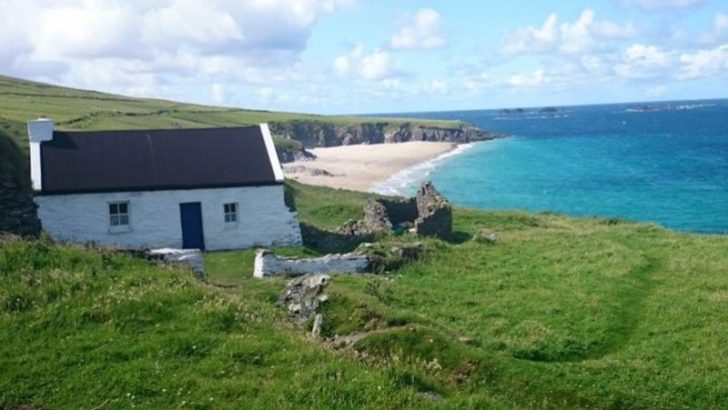State Papers
Echoes of the past from the archives
Throughout the late 1980s the future of the Blaskets off the Kerry coast was of great concern. This interest was focused on the Great Blasket, which was where the village was, and on the homes of Tomás Ó Criomhthain, Peig Sayers and Maurice O’Sullivan – the classic writers who produced what has come to be called the ‘Blasket Library’.
There is an interpretive centre on the mainland in Dunquin. On the island itself Tomás Ó Criomhthain’s cottage, for a long time gutted and roofless, has at last been completely renovated and was reopened to the public by the OPW, but only in June of this year. The interpretive centre has 50,000 visitors a year and the hope is it will boost tourist numbers even more for Kerry as part of the ‘Wild Atlantic Way’.
But is this the answer to a heritage problem?
Though the Blasket books were, as originally written, found to be too racy, too close to the speech of the soil for polite city-dwelling Gaelgoirs in the interwar decades – a problem solved by more recent editions which restore the original expression. The same sort of problem famously afflicted efforts to publish Bryan Merriman’s Cúirt An Mheán Oíche.
The people of the Great Blasket had been evacuated in 1953, though since the end of the war the islanders themselves had been pleading to be relocated on the mainland as life on the island had become (in modern circumstances) unsupportable.
Untenable
Like the other islands strung out along the western coast of Ireland, the Great Blasket had been populated from the mainland, mainly at the end of the 18th Century when the rise of the population of Ireland to eight million meant that land of any kind on the mainland had become untenable.
Though the islanders lived on the Great Basket they made effective use of all the islands in the archipelago for small scale farming, fishing and bird harvesting; and of course for play when they could.
The Great Blasket had been bought by an American millionaire Mr Taylor Collings who bought some 17 of the 25 parcels of property and commonage. The houses of the authors were in themselves now national monuments in the care of the Office of Public Works.
Thomas Collings bought his holding in the early 1970s. His idea was to ranch, which would seem a strange idea, given the difficulty of getting the beasts off the island. Without proper care they would have caused ecological damage.
In 1974 Charles Haughey, while he languished in opposition, bought Inishvickillane, the smaller island just to the west of the Great Blasket. Here he built a holiday home and installed a helipad.
Mr Haughey introduced deer from the Kilkenny National Park – again an ill-advised idea, as deer are forest animals and to not flourish in island conditions such as on the Inishvickillane.
A culture such as that on the Baskets thrives only as part of a total environment”
He retained this for the rest of his life, and it is still is used by his family today. The bleak home of the benighted islanders of the past was made into a playground for the wealthy.
But despite the expressed desire on all sides to preserve the home of the Blasket writers, this was no answer to what should been approached in a very different way. The released files suggest that little deep thought was given to the matter.
In all of this, no-one, not the politicians, the civil servants, members of the Dáil or journalists questioned any of these developments. Later the Blasket Island Act , passed in 1989 to resolve at least part of the problem, was later declared unconstitutional at the end of a decade long legal wrangle with a local business group to retain their interest in the Great Blasket.
No-one suggested that the appropriate solution was that all 15 islands of the archipelago off Dunquin should be converted into a national park (in the US way as state property, rather than the half-hearted British notion of a red line drawn around private property.
Scheme
Such an overall scheme would respect not only the former human occupants, but fauna, the sea birds, sea beasts such as whales and other marine life. These human and animals belonged to the same ecosystem, and the whole system should be preserved. A culture such as that on the Baskets thrives only as part of a total environment.
Their imaginations of the Blasket writers sprang from their surroundings, and separated from those surrounding they are much reduced. However, there were few advanced ecological ideas in 1980s Ireland. The released file (which must be only part of the holdings in the government departments) reveals only a lost opportunity.
NA file 2019 /30/410.


 The Islandman's cottage on the Great Blasket
The Islandman's cottage on the Great Blasket 